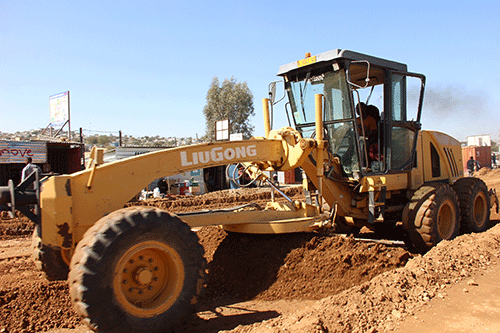The Windhoek Municipal Council has approved the establishment of two townships, designated for low-income groups. The townships, named Otjomuise Extension 14 and 15, aim to address the pressing issue of overcrowded informal settlements.
In its ordinary council meeting held Thursday, the City permitted the formation of Otjomuise Extension 14 on Farm 1033, which is a portion of Farm 999.
The new townships are strategically located along Matshitshi street, southwest of the Goreangab Dam and north of Otjomuise Extension 10.
A statement by the public relations office reads that Otjomuise Extension 14 will be covering an area of 35.8 hectares and will comprise 126 erven.
Otjomuise Extension 15 will occupy the remainder of Farm 999, a portion of Farm R/508.
The second township will cover 23.3 hectares.
“Both townships will serve as relocation sites for households from existing overcrowded informal settlements during the formalisation process. This initiative is part of Namibia’s
efforts to address urbanisation and create opportunities for low-income groups to access secure tenure and essential services,” reads the statement.
The City of Windhoek stated that the need for these townships is evident, as Windhoek experiences rapid urbanisation.
“In March 2020, the Municipal Council conducted a survey, recording 48 233 informal structures in the city’s informal settlements. The estimated population living in these areas is approximately 183 285 inhabitants, highlighting the urgency of providing suitable living conditions for the vulnerable,” it said.
The communication office emphasised that through Vision 2030, Namibia aspires to become a developed country by 2030, with a significant portion of its population residing in urban
areas.
“The establishment of Otjomuise Extension 14 and Otjomuise Extension 15 aligns with this vision and aims to uplift low-income communities by offering improved living spaces and access to basic amenities,” it stated. In addition, the City said the approval of these townships marks a significant step in addressing informality in Windhoek and ensuring a better future for its residents.
City develops electricity policy
At the same meeting, councillor Sam Shafiishuna Nujoma said the department of electricity has developed an electricity pricing policy with the assistance of the Emcom consulting group.
Emcon is a Namibian consultancy firm that is operational in the energy, electricity, building services and project management sectors.
Nujoma said the policy aims to clarify many previously undocumented rules and requirements surrounding the city’s electricity tariff portfolio.
“The policy is intended to serve as a guide to both the department of electricity as well as the public on the application of the electricity tariffs. The policy further provides a medium to long-term development outlook for electricity tariffs that should guide the direction of future tariffs use,” Nujoma said.
Furthermore, the draft policy was subsequently submitted to the Electricity Control Board for review before embarking on internal consultations, and changes were made as requested by the letter.
Nujoma said the department is now starting with the approval process within the municipal council.
“It is against this background that the department of electricity has decided to draft the policy specifically for the Municipal Council of Windhoek in line with the national connection charge policy.
* Additional reporting by Nampa


